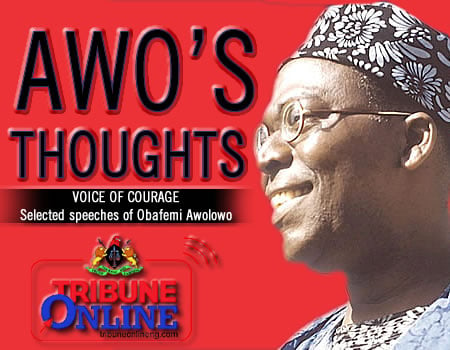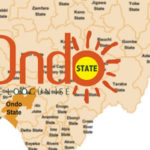CONTINUED FROM LAST WEEK
The new system will remove all the defects of the old. The Head of Government, be he Vice-President or Governor, will be compelled, against such parochial inclinations as he may have, to look upon and assiduously cultivate the entire country or Region as his constituency. His party, on whose platform he was elected to office, and his parliamentary colleagues, on whom he relies for the passage of his legislative and other measures, will still count very much in his reckoning. But they will no longer be his alpha and omega. Knowing full well that his single mandate is more than equal to the mandates of all hIs colleagues put together, he will be able to deal with them from a position of strength. He will be able to restrain their excesses and maintain high-level discipline among them. Furthermore, he will have an unshaken self- confidence, which must ipso facto be denied to someone who has been elected by only one constituency, that he is the accredited representative of the majority of his people. Such self-confidence as this is essential for the initiation and execution of bold and radical programmes which are in the overall interests of the people.
His periodic meetings with the people as well as electioneering campaigns will no longer be confined to the constituency of his birth or adoption, but will be so arranged as to cover different parts of the Federation or Region. And when and wherever he does meet the people, he will do so, not as a stranger; not as an outsider; and not through the agency of any of his colleagues. He will do so in his own right, as one of them; as their friend; and as a worthy servant and mentor in whom the people directly repose confidence. In other words, he will owe no allegiance to only one national group or constituency: he will instead give his unstinted loyalty to all, If he had any tendencies towards parochialism or sectionalism, he would, ifhe still wanted to continue in business, kill or curb them. At all times, he would strive hard to let it be seen and known that he is above national loyalties, above tribe, and above narrow-minded partisanship.
A situation might arise, though the likelihood is somewhat remote in the Nigerian context, that a Head of Government is elected mainly on his personal merits, while the party on whose platform he stands is rejected at the polls. In such an unlikely event, he would have a minority of supporters in Parliament or House of Assembly and would be at the mercy of the Opposition majority for the passage of his measures through the Legislature. There is no doubt that the Head of Government, whoever he is, would employ his ingenuity and resourcefulness to overcome the situation, confident that the majority Opposition cannot throw him out of office by an adverse vote in the Legislature. He could, among other things, invite the Opposition to come into a coalition Government with him. But if this and other manoeuvres failed, the work of Government might be completely paralysed by an intransigent and irresponsible Opposition. To anticipate a situation such as this, there should be provisions in the Constitution to the effect that any public bill other than a bill for amendment to the Constitution, or Government measure, proposed to and rejected by Parliament or Legislature, with or without amendment, in three successive meetings, during a period of not less than three months, shall become operative notwithstanding the rejection by Parliament or Legislature.
The common sense behind a provision like this is obvious and unimpeachable. The Head of Government has the mandate of the people in the same way as do the members of the Legislature put together. Until the contrary is shown, his actions during his tenure of office should be deemed to reflect the wishes and yearnings of the people in the same way as the actions of the majority Opposition. Mistakes and errors of judgment will undoubtedly be made and committed by either side. But these should be left to the verdict of the people at the next general elections. We have already declared that the Head of Government should be free to select his ministers from among, or from outside the ranks of the members of the Legislature. Two advantages are sure to accrue from this innovation. In the first place, it will help to encourage separation of powers between the Executive and the Legislature; for to the extent that such a separation exists, so much will the Executive and the Legislature be independent of each other in the discharge of their respective responsibilities. For example, when Members of Parliament do not have to fawn and cringe and fall over one another in their bid and scramble for ministerial appointments, they will feel freer to perform the duties which they owe to the electorate, fearlessly and without the kind of dishonourable compromises which were among the ugly features of parliamentary life in the First Republic.
In the second place, the Head of Government will be free to assemble the best team of ministers which his party and the country or Region can offer. It is not always that the most competent persons stand for election, or, when they do, have the politician’s ‘magic’ to attract enough votes for a victory. In this connection, it must be recognized that it is going to be several years hence before politics in Nigeria can attract many of our ablest men and women. Yet the logic of our under-developed status together with its attendant problems joins us to mobilize and employ for the work of Government all available talents, without of course doing damage thereby to the other essential theatres of our national endeavour.
In order, however, that the Government may enjoy the confidence of the people, it may be advisable that not more than half of the total number of ministers should be appointed from outside Parliament which, be it remembered, comprises the duly accredited representatives of the people. All the same, the number of non-parliamentarians in his cabinet should be at the absolute discretion of the Head of Government rather than of obligatory constitutional provision.
CONTINUES NEXT WEEK
WATCH TOP VIDEOS FROM NIGERIAN TRIBUNE TV
- Relationship Hangout: Public vs Private Proposals – Which Truly Wins in Love?
- “No” Is a Complete Sentence: Why You Should Stop Feeling Guilty
- Relationship Hangout: Friendship Talk 2025 – How to Be a Good Friend & Big Questions on Friendship
- Police Overpower Armed Robbers in Ibadan After Fierce Struggle






